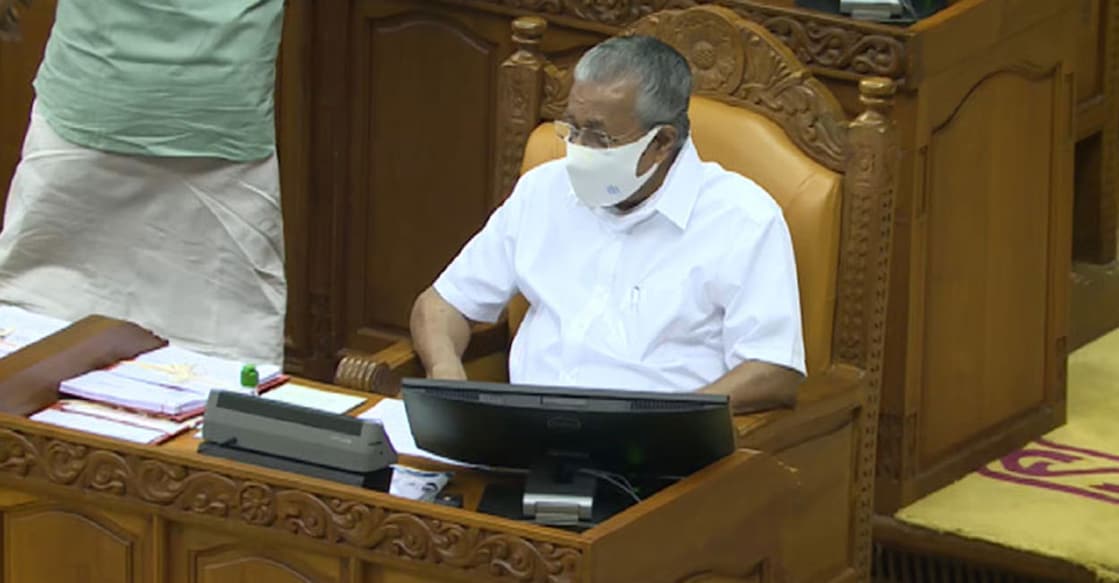Pinarayi's GST defiance: Warning aimed at Sitharaman or Kerala's small traders?

Mail This Article
Finance minister K N Balagopal on Wednesday gave a new interpretation to the government's official stand, articulated by Chief Minister Pinarayi Vijayan himself on July 26, that it would not implement the 5 per cent GST on pre-packed essential goods like rice and pulses.
Till now, the government's declaration had felt like a defiance of the Centre. But on Wednesday Balagopal told reporters in Thiruvananthapuram that it was a warning to small traders in Kerala that they should not use the excuse of the latest removal of GST exemptions on food items and grains to jack up prices of essential commodities.
He said that shops from where nearly 80 per cent of essential purchases are made in Kerala are exempt from the GST.
Businesses with an annual turnover of up to Rs 40 lakh are GST exempt. And those with a turnover up to Rs 1.5 crore can opt for the Composition Scheme and need to pay only one per cent as tax.
"This means these small traders, from where lower and upper middle class purchase their essential goods, are not supposed to impose GST," Balagopal said. "Even if they charge GST, it will not come to the government's coffers," he added.
The minister reasons that, as before, only branded essential goods would come under the GST net. "Rice or pulses sold loose in these shops, especially Kudumbashree products, even if packaged, will not be slapped with GST," he said.
He said Triveni and Supplyco shops in Kerala had not charged GST for essential goods sold loose when these shops were price-checked by officials on Wednesday.
The test-check seemed a response to Malayala Manorama featuring on its front page on Wednesday a bill from a supermarket in the capital city that showed that GST was being imposed on unbranded cereals and pulses despite the CM's promise.
Nonetheless, even the minister conceded that there was confusion. After the new GST rate rationalisation came into effect on July 18, it is not just branded essential goods that would attract a GST of 5 per cent as the minister said.
From that day on, any "pre-packaged and labelled" essential good would attract a GST of 5 per cent. Additionally, certain other items such as curd, lassi and puffed rice, when “prepackaged and labelled”, would also be imposed a GST of 5 per cent.
Any essential good that is packed before the purchaser could come and get it is a 'pre-packaged' good under the Legal Metrology Act. And if it has a label stating the price and quantity, it is 'labelled'.
This technically renders the cereals, pulses and sugar found in transparent plastic covers in local provision stores taxable.
The minister's argument is that they could not be taxed if they are sold in shops with a turnover of less than Rs 1.5 crore.
However, there is clarity when he says that rice, sugar or wheat kept in large glass containers in stores and malls, and which are packed only after the customer asks for it, cannot be taxed. These qualify as non pre-packaged, and therefore, cannot be slapped 5 per cent GST.
The Union Finance Ministry has made this clear. "If a retailer supplies an item in loose quantity from a 'prepackaged and labelled' package, such supply by retailer is not a supply of packaged commodity for the purpose of GST levy."
The store or the mall would have purchased the cereals and pulses in bulk packages but when they sell them loose, it becomes non-taxable.
However, the Union Finance Ministry has also underlined that if a local rice miller sells rice in a packaged form, and even if it is not labelled, this packaged rice is liable to be taxed.
Given the Centre's explanation, it is not clear whether even Kudumbashree products, if pre-packaged, could be exempt from the new GST imposition.
Balagopal agreed. “Some legal issues are involved. We will have to fight it out,” he said.

